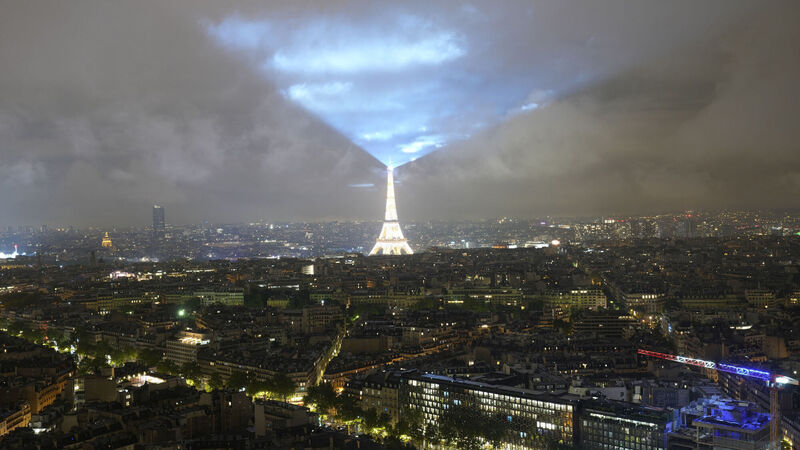Paris and the Olympics have changed each other during their summer fling

A laser show is projected from the Eiffel Tower in Paris, France, during the opening ceremony of the 2024 Summer Olympics, Friday, July 26, 2024. Picture: AP Photo/Brian Inganga
In French, there are no goodbyes.
Instead, Olympic crowds from Paris to the surfing venue in Tahiti were saying “au revoir” — see you again — as the 2024 Games drew to a close Sunday.
CLIMATE & SUSTAINABILITY HUB
















